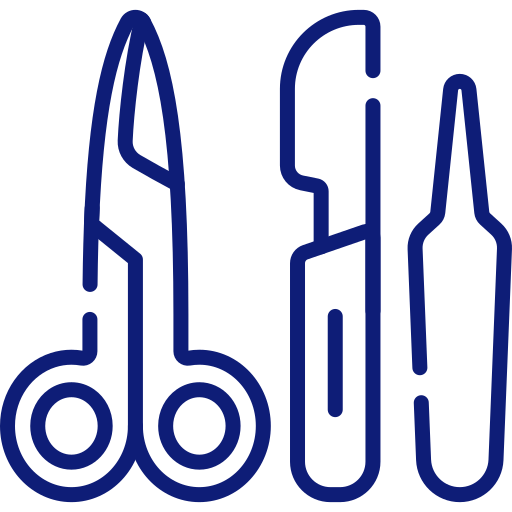January 17, 2024
Blog
Enhancing resilience in pharma supply chains with cloud technology
Laura Johnson
Senior Director of Life Sciences Sales, Americas
Share
In recent years, the pharma industry has experienced seismic shocks. During the pandemic, an increased demand for products coincided with severe restrictions to movement and operations. Whilst we may feel operations have returned to business as usual, there are new challenges that pharmaceutical companies must grapple with.
Economic headwinds and geopolitical tensions have led to ongoing supply chain disruption, product shortages, and increased cost pressures. In just the last couple of years, Resilinc found that some European drug manufacturers have seen prices increase tenfold due to rising electricity costs.
It’s no surprise that, within this context, business leaders are being forced to assess their current supply chains and find new ways to reduce costs, improve their operations, and become more resilient. Though often overlooked, labeling is central to addressing the issues facing the pharmaceutical supply chain today. Indeed, Gartner research indicates that non-declared allergens, mislabeling and inaccurate packaging graphics continue to be a leading cause of product delays and recalls. To make matters worse, compliance violations in the pharmaceutical industry have exceeded $50 billion since 2000, with the average cost of non-compliance has grown by 43% over the past nine years. The label clearly plays a vital role and getting it wrong can be costly.
To stay competitive, pharmaceutical companies must consider how they go about labeling their products. Our 2024 “Top 5 Trends” survey shed light on how forward-thinking companies are improving labeling, highlighting key trends that can enhance pharma labeling practices overall.
Cloud becomes a preferred deployment method
The first trend noted by this survey is the rising importance of cloud-based labeling solutions, with more than half (52%) of companies currently hosting critical enterprise applications in the cloud. With its agility, quick deployment time, and low upfront cost, the cloud has become increasingly attractive across industries and functions over the last few years.
A core motivation to adopt the cloud is its cost-saving benefits. Cloud technology does not require extensive upfront investments, and in fact reduces the demand for internal IT infrastructure. Small to medium-sized businesses can therefore benefit from the same technologies as their larger competitors who have more resources. In today’s context of inflationary pressures, cost crunches, and widespread component shortages, these cost-saving benefits could prove to be critical.
And yet, there are several other benefits of shifting labeling operations to the cloud: 44% of survey participants noted ease of deployment as a key benefit, while 42% cited reduced maintenance.
Traceability assumes greater importance
Seventy percent of respondents pointed to global traceability as a priority for their business. For the pharma industry, traceability is of vital importance and when managed well, the label works alongside stringent regulations to identify and remove counterfeit drugs and ensure product quality.
Minimized risk of counterfeit drugs
The risks posed to customer safety from falsified goods and counterfeit products entering the market are significant for the pharmaceutical industry. With the global anti-counterfeiting packaging market projected to grow by 45% between 2018 and 2026, brands need to clearly authenticate their products.
By allowing manufacturers to trace an individual item back to its point of origin, the label facilitates greater supply chain visibility, meaning companies can confidently confirm the authenticity of their product, pointing to the digital trail generated by its label. Real-time monitoring of the product's location and status reduces the potential for human error in tracking and tracing. This level of automation provides greater control over the supply chain, preventing counterfeiting and diversion of products.
By capturing data at every stage of the product's journey from production to the end user, manufacturers can ensure authenticity, prevent diversion, and avoid grey market sales.
Improved quality control
This survey reveals that 49% of business leaders believe an inability to effectively manage recalls is the biggest risk of not being able to track products through the supply chain. For pharmaceutical companies, the stakes are high – mislabeling has a direct impact on consumer safety, and product recalls need to be managed quickly to avoid harm.
Fortunately, advances in technology now mean we can trace products through the supply chain with greater ease. The label carries important product information, including serial numbers, certificates of origin and batch information, throughout the supply chain and thereby establishes a vital link between the digital and physical aspects of the product.
In essence, the label enables a complete audit trail from raw ingredients to manufacturing and distribution to the end-user and is therefore a critical component when it comes to product traceability. By improving their label management, pharma companies can therefore improve quality control, mitigate risk, and avoid unnecessary recalls.
Sustainable sourcing for a better tomorrow
In recent years, we have rightly seen sustainability rise to the top of corporate agendas. It is therefore no surprise that 78% of the companies surveyed said they already have a strategy in place to meet their environmental targets. With climate concerns weighing heavily on the minds of both manufacturers and consumers, pharma business leaders need to 'green' their operations. Again, the label, though often overlooked, can help companies achieve their sustainability objectives.
As previously discussed, the label is a crucial part of an intelligent supply chain. Modern labeling solutions ensure products are produced, shipped, and delivered to the correct location. From a sustainability perspective, this is important as it reduces a company’s global footprint by allowing for the better management of inventory and the minimizing of loss and waste due to labeling errors. Digital traceability also means pharma manufacturers can ensure the sourcing of raw materials is responsible.
Supporting evolving regulation
Roughly 84% of survey respondents found today’s regulatory demands to be more complex than ever before. Regulations within the pharma manufacturing sector are particularly complex and can be burdensome to manufacturers.
Certainly, the increased costs associated with compliance, combined with medical device shortages across Europe, have led to price increases for medical devices. The prospect of the EU’s MDR, which aims to improve the safety and performance of medical devices while ensuring greater transparency and accountability in the medical device industry, presents a further challenge and cost for manufacturers. In such a regulatory ecosystem, pharma companies need to be able to easily implement global label changes across all templates and thereby avoid noncompliance and product recalls, with all the associated costs and penalties.
The future lies in the cloud
Cloud technology is becoming increasingly popular across sectors and different operations and there is much to be said for its potential within the supply chain. By leveraging the power of the cloud, pharma companies can enhance their operational efficiency, enable compliance, mitigate risks, and ensure the seamless passage of their products through the supply chain.
* This was originally published by Pharma Manufacturing







